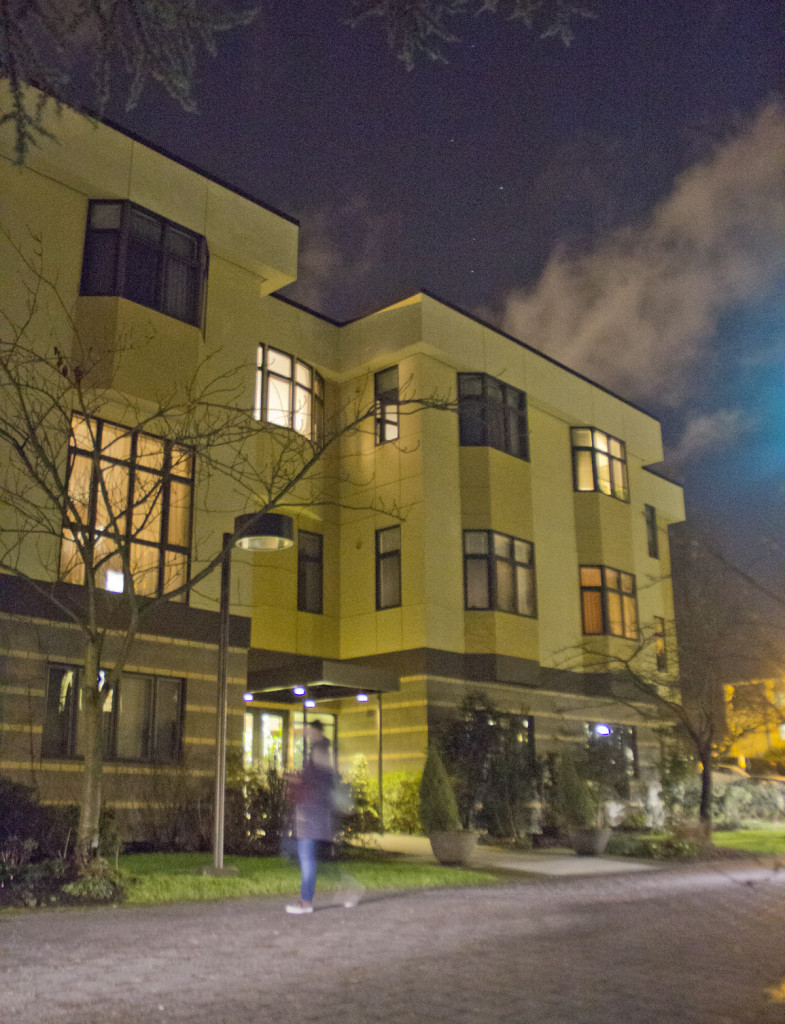Seattle U already owned the land that Arrupe sits on, but until recently the building itself was owned by the Oregon Province of the Society of Jesus, the Jesuit province whose jurisdiction covers much of the west, including Oregon and Washington. The sale was made for $2.2 million.
The sale of the building was prompted by the Province, said President Fr. Stephen Sundborg, S.J.
“The Province needed to have more funds for the training of Jesuits and the care of Jesuits in their old age,” said Sundborg.
Sundborg said the reason they needed more funds was “because it had gone through a bankruptcy… it left the Province without sufficient funds for being able to do the formation of Jesuits and the care of elderly Jesuits. So what they did is they asked every institution to purchase the property of the buildings that the Province owned but that were for the sake of the university.”
Sundborg added that many of these recent asset sales had occurred within the last year and a half; for example, with Seattle Prep and Bellarmine Prep in Tacoma.
The bankruptcy in question occured to several years ago, wherein the Oregon Province was required to pay approximately $166.1 million in settlements to about 500 victims of sexual abuse from Jesuits in past decades. Many Jesuits were implicated, in many different states within the Province’s outreach. In the 1950s, a Jesuit named Fr. James Toulouse was accused of abusing boys in Spokane and was transferred to Seattle U. He continued with the abuse, staying at Seattle U until his death. According to The Oregonian, the president of the university at the time was upset by his presence, but seemingly no one did much about it—including Father James McGoldrick S.J.—after whom the McGoldrick Learning Commons is named.
The settlements for these abuses were paid years ago.
“It is completely separate… the sale of the property to Seattle University has nothing to do with the bankruptcy,” said Pat Walsh, spokesperson for the Oregon Province. The claims were all paid off as a result from their emergence from bankruptcy a few years ago.
“The money for the sale of the building will go into the Province’s budget… and could be used to fund the care of elderly priests,” Walsh said.
“It is separate from it, in other words, what’s important there is these were not sold in order to make any settlements,” Sundborg explained. “But it’s also the case that the Province has needed the funds in order to carry on its ordinary responsibilities.”
“Conversations about that piece of property evolved over time,” said Walsh.
While the actual acquisition happened in January, Sundborg says that the process began about a year and a half ago. The Board of Trustees decided they were interested in the offer and set aside some reserves to make the purchase. After negotiation, Seattle U bought the Arrupe building at a little below market price.
The effect of the purchase can be felt by the Jesuits on campus, Sundborg said. Daily life hasn’t changed at all; the Jesuits still live in either the residence halls or the Arrupe building. And yet, the purchase has “felt to them like a vote of confidence in their importance to the Jesuit purposes of Seattle U,” Sundborg explained.
Seattle U is now on the same plane as all other Jesuit universities on the West coast, said Sundborg. In the other schools, the Jesuit community on campus is cultivated by the university.
“The fact that the university, through the Board of Trustees, stepped up and negotiated and purchased that is a sign to [the Jesuits] that they’re valued for what they contribute to Seattle University, by way of their work and their presence here,” Sundborg said.
While not a legal partner, Walsh explained, Seattle U is a sponsored institution of the Province. All Jesuits belong to one, Sundborg said, and Seattle U has a “live relationship with the province… there’s a living link of communication, collaboration [and] mutual support.”
The acquisition speaks to the value of the maintenance of Jesuit ideals at Seattle University–owning the building means that the Board of Trustees sees it as important “that there be able to be a Jesuit community here and that the Jesuits be active here now and five years from now and ten years from now and so forth, because we’re an important sort of catalyst for the university and we help carry forward the Jesuit purposes.”










John Sweeney
Dec 24, 2023 at 6:23 pm
The late US Supreme Court Justice described what he viewed as nonsensical language of another Justice in two majority opinions as “joggers pokery”and “argle bargle.” The former president of Seattle University used the same type of convoluted arguments to make his absurd point